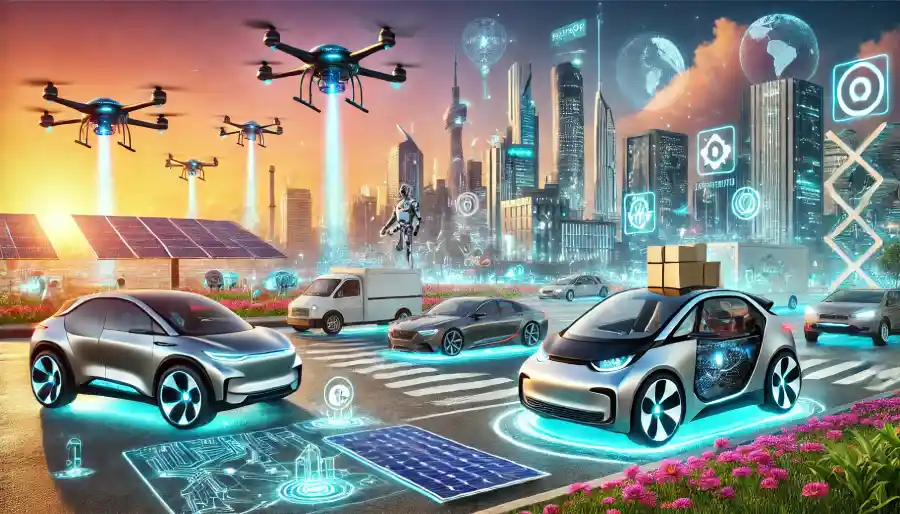The Future of Automotive Technology: Innovations Driving Tomorrow’s Vehicles
Key Takeaways
- Discover the latest advancements shaping the future of vehicles.
- Uncover how these innovations aim to improve safety, efficiency, and the driving experience.
- Explore real-life examples and research backing these technological shifts.
Introduction to Automotive Technology Innovations
Technology is a key component of design, manufacture, and customer experience in the automotive industry, which is going through a revolutionary period. Today’s vehicles are not just transportation modes but a fusion of advanced technology and engineering driven by safety, fuel efficiency, and personalized driving experiences. Technology has become a primary factor for consumers when purchasing a vehicle. As new car dealers Orlando will assert, savvy buyers are eager to embrace vehicles with the latest technological advancements as they look toward a future that promises increased convenience and efficiency.
Emerging automotive technologies, such as autonomous driving, electric vehicles, and advanced connectivity, are reshaping urban landscapes, influencing global economies, and altering everyday life. Manufacturers are investing heavily in research and development to ensure the next generation of vehicles meets the demands of a tech-literate society.
Electric Vehicles: A New Era
The use of electric vehicles (EVs) as a greener substitute for fossil fuels is growing in popularity. Advancements in battery technology have increased range and reduced charging times, making them practical for everyday use. The rise of EVs is supported by extensive charging infrastructure, making charging stations more accessible in urban and rural areas. Governments worldwide are setting ambitious targets to promote EVs as part of sustainable development goals.
Global trends indicate that the electric vehicle market is poised for rapid growth, driven by initiatives and incentives promoting cleaner transportation solutions. This shift represents a commitment to environmental responsibility and a significant economic opportunity as countries compete to lead in electric vehicle innovation and production. For those exploring sustainable driving options, Dodge Dealership Orlando provides access to the latest automotive advancements, aligning with this transformative movement.
Autonomous Driving: The Road Ahead
Autonomous driving, a concept combining sensors, cameras, and AI, is transforming the future of transportation. It aims to reduce human error, improve traffic flow, and offer mobility to the elderly and disabled. However, the journey towards fully autonomous vehicles faces challenges in safety and ethical considerations despite its significant potential benefits. A discussion on autonomous vehicle safety challenges explores these hurdles, emphasizing the importance of building trust among potential users. Developing robust algorithms that can handle the complexities of real-world driving conditions remains a significant task for engineers and researchers. As these technologies mature, their integration into everyday life could transform transportation as we know it.
Connectivity: Cars in the Internet of Things
The Internet of Things (IoT) has expanded its reach to the automotive sector, revolutionizing communication between vehicles and their surroundings. Through intelligent navigation and management systems, connected automobiles can improve the driving experience by providing real-time data on traffic patterns, weather, and risks. This technology also offers synchronized infotainment options, seamless integration with mobile devices, remote diagnostics, and maintenance alerts. As cars become more competent, they adapt to drivers’ preferences, delivering personalized experiences.
Sustainability: Eco-Friendly Automotive Solutions
Modern automotive innovation is driven by sustainability. It focuses on reducing vehicles’ ecological impact through sustainable materials, energy-efficient manufacturing processes, and end-of-life recycling. This includes creating greener production facilities and establishing supply chains prioritizing resource conservation. These initiatives demonstrate a broader industry commitment to climate change mitigation and long-term environmental stewardship, aiming to minimize waste and promote sustainable practices.
Safety Enhancements: Protecting Passengers and Pedestrians
Automotive engineering prioritizes safety, and recent technological advancements have strengthened this. Advanced driver-assistance systems (ADAS) are becoming standard across new vehicles, using technologies like radar, lidar, and cameras to detect hazards and intervene by preventing accidents. Features including lane departure alerts, automatic emergency braking, and pedestrian detection save cyclists, pedestrians, and car occupants. As these systems evolve, they will minimize incidents and enhance public trust in automotive advancements.
Consumer Experience: Comfort and Convenience
Incorporating technology into vehicles has enhanced the consumer experience by offering unprecedented comfort and convenience. From intelligent climate control systems that automatically adjust temperature settings to noise-canceling cabins that provide a serene travel environment, today’s vehicles prioritize driver and passenger satisfaction.
Innovative features, such as gesture control interfaces, voice-activated functionalities, and virtual assistants, ensure that occupants remain connected and entertained throughout their journeys. These advancements transform vehicles into immersive comfort zones, accommodating the diverse needs of modern drivers.
Concluding Thoughts: The Changing Landscape of Driving
The advancement of automotive technologies is paving the way for a new era of transportation characterized by increased efficiency, sustainability, and interactivity. These innovations will impact urban planning and environmental policies, highlighting the profound impact of automotive advancements. As we approach this technological revolution, it holds promise for a more responsible and interconnected future, enhancing our world navigation.

